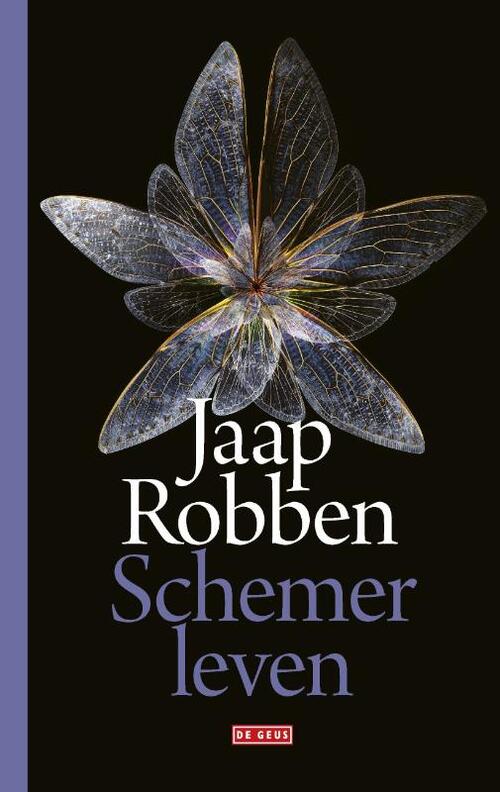RexLegendi reviewed Schemerleven by Jaap Robben
Review of 'Schemerleven' on 'Goodreads'
5 stars
Het lukt me niet goed om aan iets anders te denken. Steeds zie ik de witte voeten van Louis voor me. Hoe ze onder de foliedeken uitsteken. Zo onbeschermd. Zijn pantoffels verloren in de verwarring en de paniek. Zijn voeten, zo kwetsbaar terwijl hij de ambulance in wordt geschoven.
And this is how you tell a story. Afterlight by Jaap Robben (1984) is the most heartrending and engaging Dutch-language novel I’ve read since [b:Out of Mind|1232307|Out of Mind|J. Bernlef|https://i.gr-assets.com/images/S/compressed.photo.goodreads.com/books/1370125673l/1232307.SX50.jpg|1062887] by J. Bernlef. It explores themes such as death and life, past and present, loneliness, and family, while portraying the life of a woman in the 1960s. Frequently reminded of the works of Annie Ernaux ([b:Mémoire de fille|38889468|Mémoire de fille|Annie Ernaux|https://i.gr-assets.com/images/S/compressed.photo.goodreads.com/books/1519880546l/38889468.SY75.jpg|50107801], [b:Passion simple|19217460|Passion simple|Annie Ernaux|https://i.gr-assets.com/images/S/compressed.photo.goodreads.com/books/1386280258l/19217460.SY75.jpg|388702]), I am deeply impressed by the author’s empathy and insight.In short, the novel follows an elderly woman, …
Het lukt me niet goed om aan iets anders te denken. Steeds zie ik de witte voeten van Louis voor me. Hoe ze onder de foliedeken uitsteken. Zo onbeschermd. Zijn pantoffels verloren in de verwarring en de paniek. Zijn voeten, zo kwetsbaar terwijl hij de ambulance in wordt geschoven.
And this is how you tell a story. Afterlight by Jaap Robben (1984) is the most heartrending and engaging Dutch-language novel I’ve read since [b:Out of Mind|1232307|Out of Mind|J. Bernlef|https://i.gr-assets.com/images/S/compressed.photo.goodreads.com/books/1370125673l/1232307.SX50.jpg|1062887] by J. Bernlef. It explores themes such as death and life, past and present, loneliness, and family, while portraying the life of a woman in the 1960s. Frequently reminded of the works of Annie Ernaux ([b:Mémoire de fille|38889468|Mémoire de fille|Annie Ernaux|https://i.gr-assets.com/images/S/compressed.photo.goodreads.com/books/1519880546l/38889468.SY75.jpg|50107801], [b:Passion simple|19217460|Passion simple|Annie Ernaux|https://i.gr-assets.com/images/S/compressed.photo.goodreads.com/books/1386280258l/19217460.SY75.jpg|388702]), I am deeply impressed by the author’s empathy and insight.In short, the novel follows an elderly woman, Frieda, or ‘Ietje’, who, after the sudden death of her husband Louis, reflects on a romance she had before their marriage. Personally, I was most moved by the present-day narrative, in which Robben describes how Frieda is forced to leave the house she has lived in for most of her life, as well as her affection for and frustrations with her son Tobias. Their relationship is depicted vividly; one particular scene, where Tobias rants at his mother, makes their struggles deeply understandable from both perspectives.The flashbacks to 1963 create both suspense and an additional layer that explores society’s patronising attitude towards women. Throughout the story, it is shocking to discover how little influence ‘Ietje’ (even her name) has over her own life. Interestingly, at an older age, she is once again entrusted to the care of others, albeit with more compassion this time. Some characters, especially her lover Otto, can be quite irritating, yet they all play their role in the well-crafted narrative, where every word seems purposeful.The novel contains many elements that sparked my thoughts, and I hope to read it again someday. It seems odd that it didn’t receive much recognition in terms of awards; perhaps the structure with flashbacks was deemed too conventional by the juries. In any case, Afterlight stands as an early highlight of my 2025 reading year.

